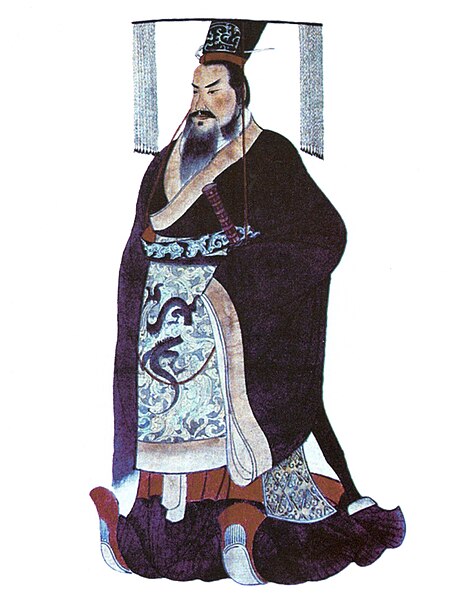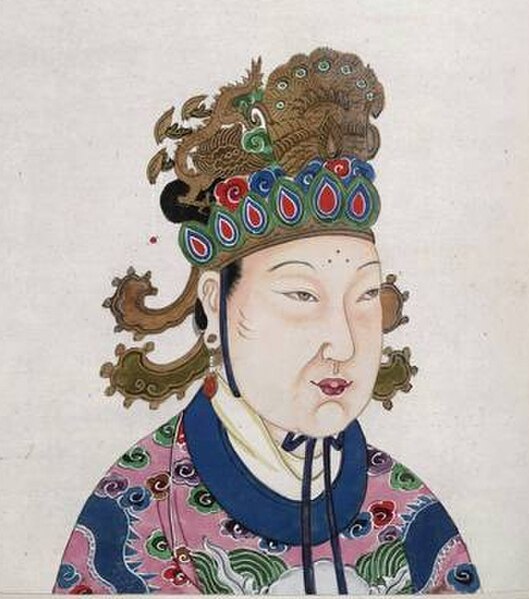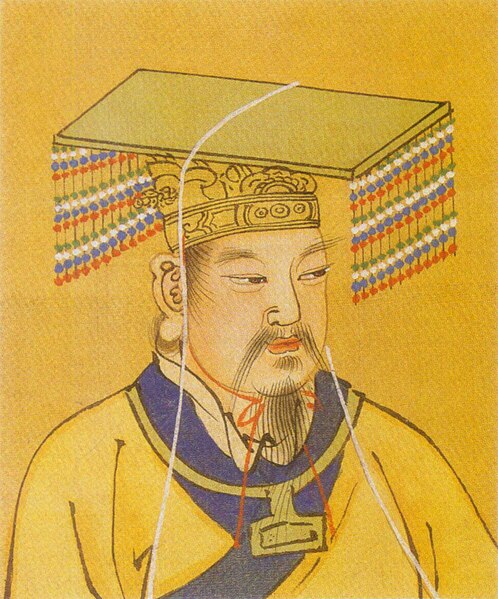Emperor Xuan of Chen (陳宣帝), personal name Chen Xu (陳頊), also called Chen Tanxu (陳曇頊), courtesy name Shaoshi (紹世), childhood name Shili (師利), was an emperor of the Chen dynasty of China. He seized the throne from his nephew Emperor Fei in 569 and subsequently ruled the state for 13 years. He was considered to be a capable and diligent ruler, who at one point militarily expanded at the expense of the Northern Qi. After the Northern Qi fell to the Northern Zhou in 577, however, the Chen dynasty was cornered, and soon lost the gains it had previously made against Northern Qi. Emperor Xuan died in 582, leaving the state in the hands of his incompetent son Chen Shubao, and by 589, the Chen dynasty would be destroyed by Northern Zhou's successor state Sui dynasty.
Tang dynasty portrait of Emperor Xuan by Yan Liben
Throughout Chinese history, "Emperor" was the superlative title held by the monarchs who ruled various imperial dynasties. In traditional Chinese political theory, the emperor was the "Son of Heaven", an autocrat with the divine mandate right to rule all under Heaven. Emperors were worshiped posthumously under an imperial cult. The lineage of emperors descended from a paternal family line constituted a dynasty, and succession in most cases theoretically followed agnatic primogeniture.
Qin Shi Huang, the first emperor of China (r. 221–210 BC)
Qin Shi Huang escaping assassination (3rd century AD)
An 18th century depiction of Wu Zetian, the only female emperor of China
Yellow Emperor





